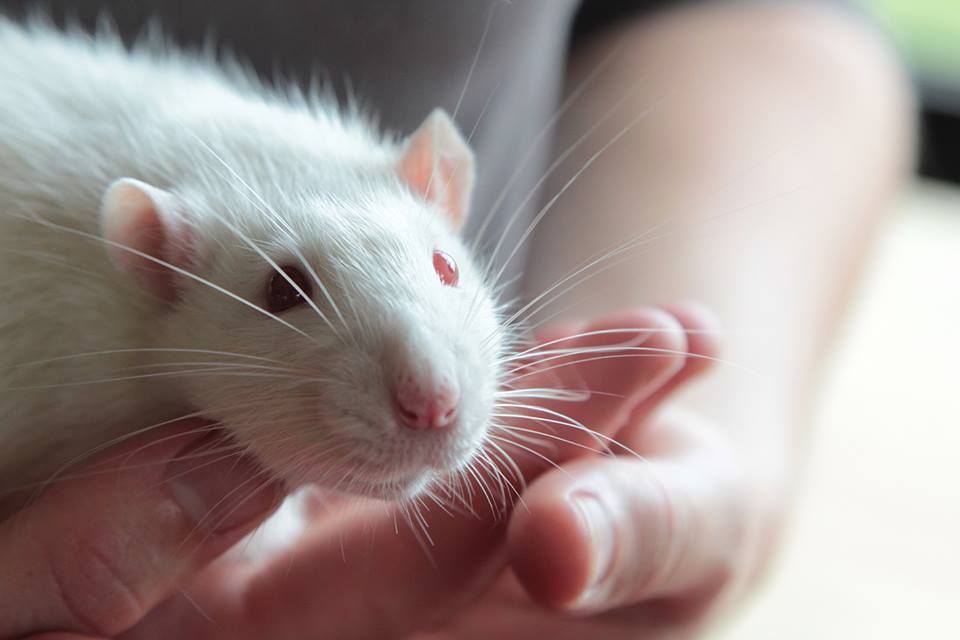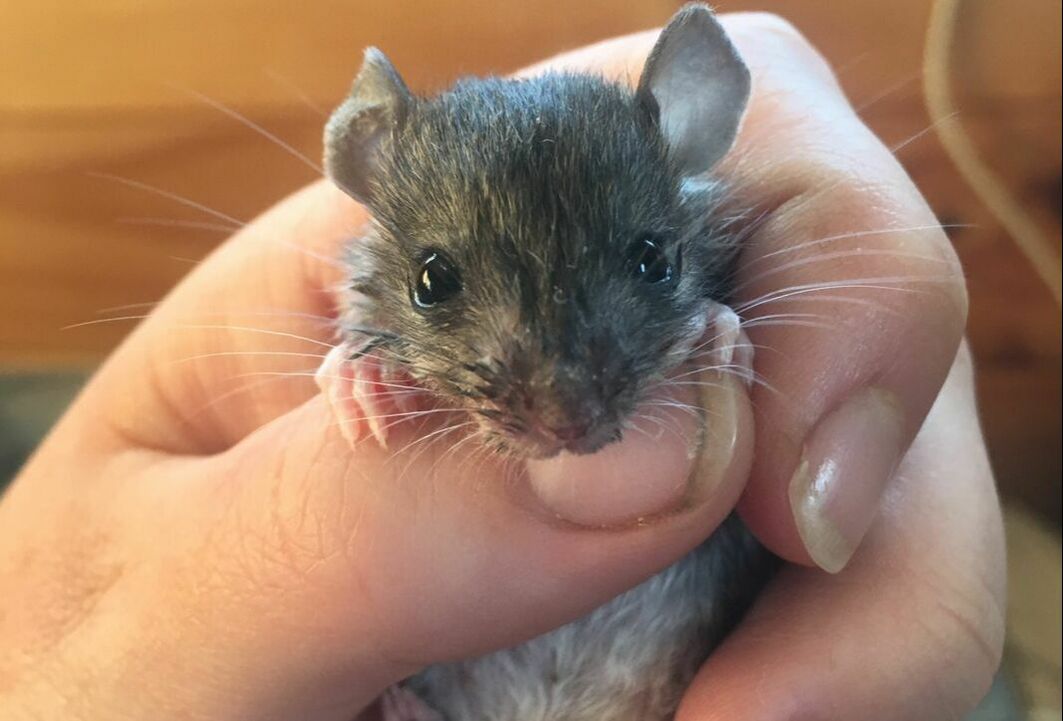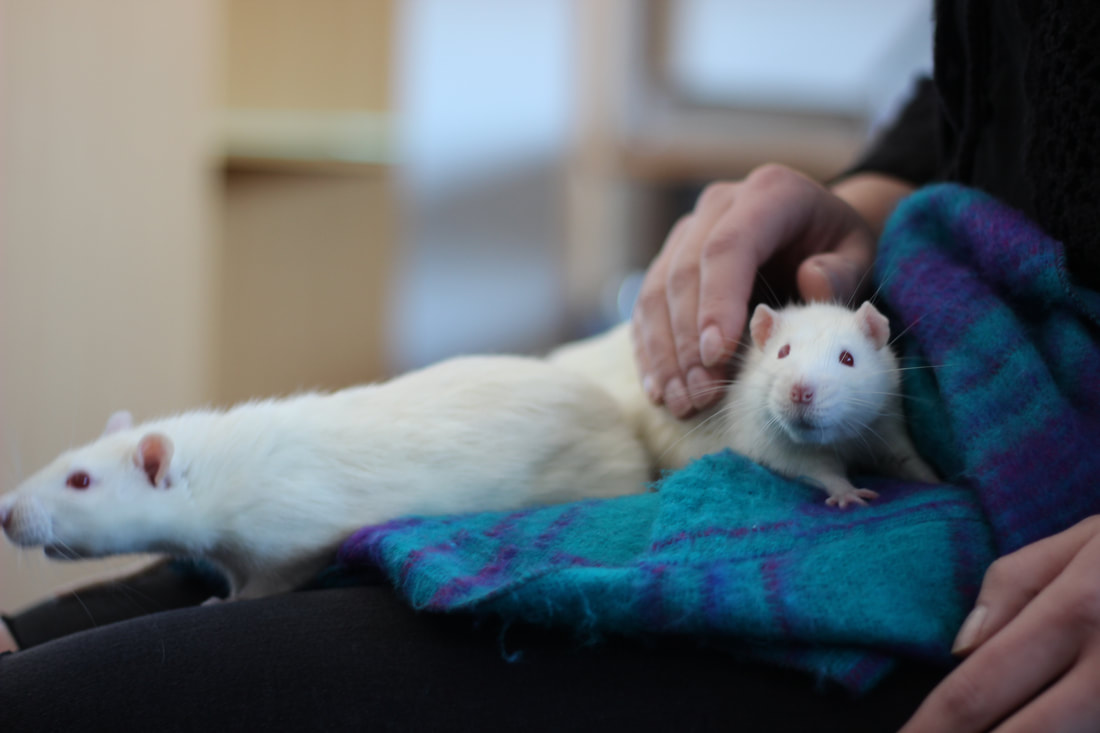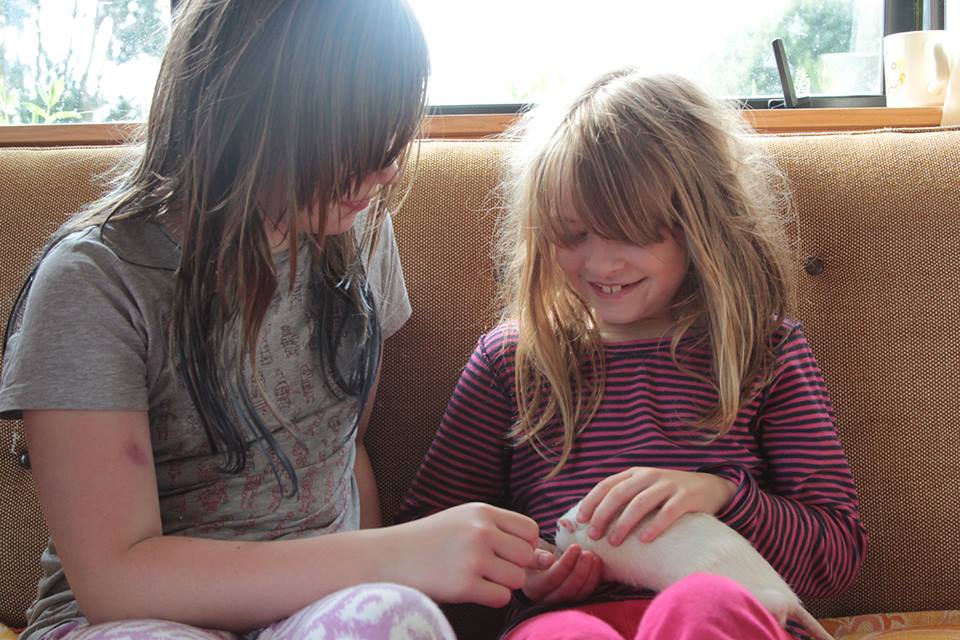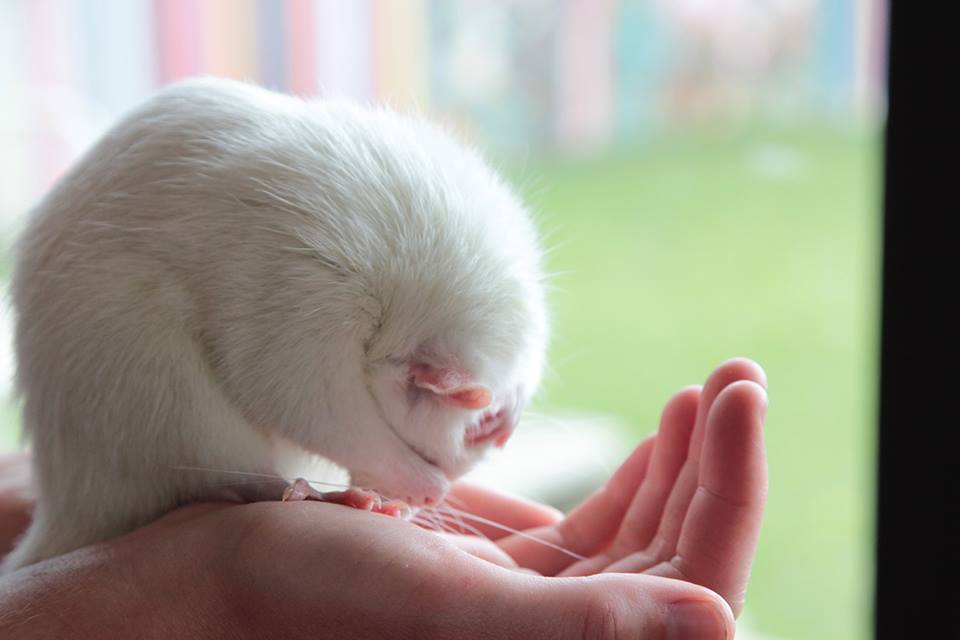The Black Sheep Animal Sanctuary
Rat Rescue
|
In March 2015, eleven large white rats arrived unexpectedly at the Black Sheep Animal Sanctuary. Our new friends had been rescued from a vivisection laboratory, where they had endured psychological experiments. The sanctuary was not set up for rats, so we quickly contrived a playground and ‘rat castle’ for them, complete with tiny crocheted hammocks. Lively and affectionate, the rats quickly settled into their quarters. Some were adopted out to permanent loving homes, while the others lived out their natural lives with us, eventually dying of old age.
|
We missed our rat playmates very much, so were delighted to be called on to care for Otter, an orphaned nine-day old baby rat, who had been rescued from a kind supporter's cat, and passed on to us to raise. When Otter first arrived in April 2019, her eyes were still closed, and we fed her by hand around the clock. Otter is extremely playful and sociable, enjoying lots of human love and attention. We have arranged for some new rat friends for her, who will be arriving at the sanctuary soon.
|
In New Zealand, rats often live difficult lives, poisoned as 'pests', or suffering in medical or psychological experiments. Many people are unaware that rats are highly intelligent little beings who are social, friendly and altruistic - a rat will free a trapped cage-mate before eating, even if their favourite food is on hand.
|
Rats in laboratories Rats are often used in laboratory experiments relating to intelligence, learning, and drug abuse. New Zealand universities carry out a wide range of medical and psychological tests on rats. These include researching the impact of brain damage on rats’ ability to remember, and anxiety experiments investigating the effects of methadone on pregnant and lactating rats. Some researchers have exposed pregnant rats to an immune trigger that induces schizophrenia-like symptoms in their adult offspring, while others have drilled into rats’ ears to explore the effects of inner ear damage on their brains. At Victoria and Otago Universities, scientists have been forcing rats and mice to swim until they are close to drowning, in an attempt to model depression in humans. A Victoria University researcher has also been performing MDMA and cocaine experiments on rats. Such procedures can be shockingly cruel. They are also unlikely to produce significant benefits for people, as rats are biologically, psychologically and genetically very different from humans. When we think of the rats we have cared for at the sanctuary, it is horrible to imagine scientists deliberately damaging their brains, or drilling holes into their tiny, leaf-like ears. |
How to help rats
|
Subscribe to our mailing list to find out about working bees where you can meet the Sanctuary animals. If you don't live in the lower North Island, please get in touch so we can let you know about other organisations who rescue rats.
Help stop experiments on rats and other animals, by distributing leaflets or organizing stalls and protests!
For more information, and to support the current campaign against the 'forced swim' test on rodents, contact organisations such as the New Zealand Anti Vivisection Society and SAFE Boycott Products Tested on Animals!
|
@font-face {
font-family: SQMarket-Medium;
font-style: normal;
font-weight: 500;
src:
url("//cdn2.editmysite.com/fonts/SQ_Market/sqmarket-medium.woff2") format("woff2"),
url("//cdn2.editmysite.com/fonts/SQ_Market/sqmarket-medium.woff") format("woff");
}
>
